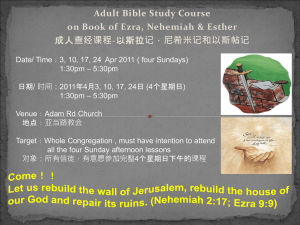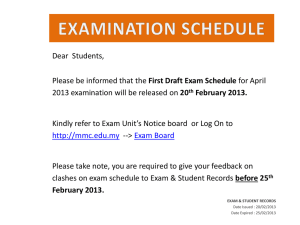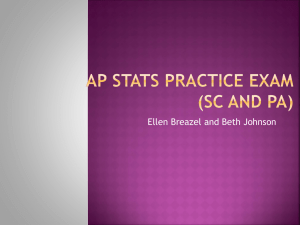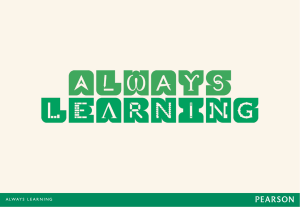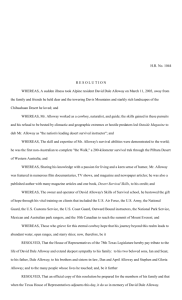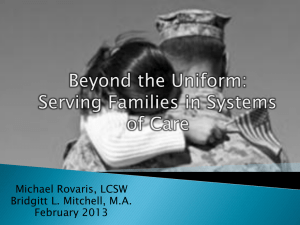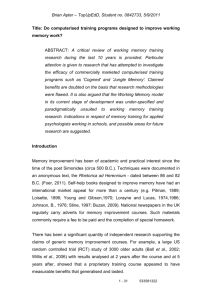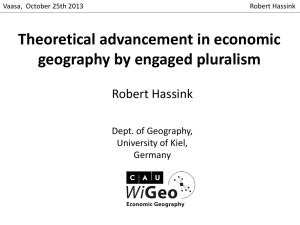What is Working Memory?
advertisement
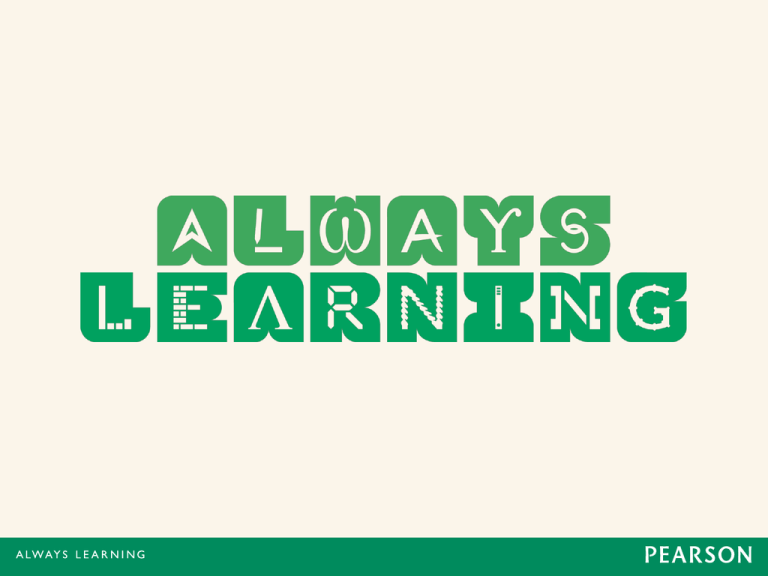
The future of Working Memory BETT 2013 Alison Winter. What is working memory? What is Working Memory? The ability to keep information in your mind for a short period of time (seconds) and be able to use the information in your thinking A system for temporary storage and manipulation of information, necessary for wide range of cognitive tasks Working memory is the search engine of the mind Working memory is key for academic performance Working memory refers to a brain system that provides temporary storage and manipulation of the information necessary for such complex cognitive tasks as language comprehension, learning and reasoning. (Baddeley, 1992) Associated with reading (Gathercole & Pickering, 2000) and mathematic (Geary et al., 2004) ability 10-15% of all students have working memory deficits (Alloway et al., 2009) Children with poor working memory make poor academic progress •Of 300 children with poor working memory (Gathercole & Alloway, 2008): o 83% scored poorly on either reading or maths tests the vast majority of these scored poorly in both areas The Development of Working Memory in ADHD Control ADHD Working Memory 95 85 75 Correct 65 55 45 35 25 15 5 7,5 8,5 9,5 10,5 11,5 12,5 13,5 Age Westerberg et al. (2004), Visuo-spatial working memory: a sensitive measurement of cognitive deficits in ADHD. Child Neuropsychology 10 (3) 155-61. 14,5 15,5 Problems that Working Memory deficits can cause in the Classroom… Is easily distracted when doing something not highly interesting Has trouble waiting his/her turn Struggles with reading comprehension Struggles doing maths calculations in his/her head Struggles with getting started Struggles with completing a task Difficulties when planning and organising something with multiple steps Often seems restless and on the go Loses belongings frequently AWMA-2 and Cogmed Working Memory Assessment and Intervention Gaining understanding via assessment: Alloway Working Memory Assessment AWMA 2 is a web-based assessment which screens for Working Memory Deficits in children and adults (5 – 79yrs). Provides standard scores and percentiles, which aid in: • - Monitoring individual learners or whole class progress - Identify individual strengths and weaknesses - Provide evidence for extra support 8 Presentation Title runs here l 00/00/00 Cogmed Working Memory Training Cogmed – Working memory intervention programme for ages 4 and up, including adults. – Based on solid research. – Improves – 25 WM substantially and lastingly. sessions, lasting approx 30 mins. Why Cogmed makes sense for a school • Used with students who struggle due to WM constraints • Cogmed training will improve WM substantially and lastingly • Allows student to absorb the standard curriculum programs effectively • Results in better maths and reading comprehension performance • Acts as a primer for improved learning; building the platform for learning For more information Webinars: AWMA: • Monday, February 25th at 3.30PM • Thursday, March 21st at 3PM • Thursday, April 25th at 12.30PM Cogmed • Monday, February 25th at 12.30PM • Thursday, March 21st at 12 midday • Thursday, April 25th at 3.30PM Contacts www.pearsonclincial.co.uk www.cogmed.uk.com Alison Winter Alison.winter@pearson.com +44 (0)7734 744 771 +44 (0)161 488 4006 Q&A? Thank you
